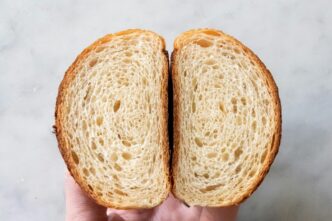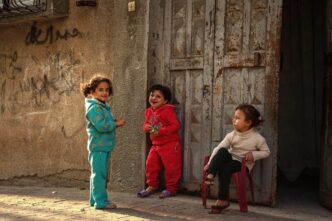As Britain faces an escalating cost-of-living crisis, food insecurity and fuel poverty have reached alarming levels. Soaring energy bills, rising inflation, and stagnating wages are pushing millions into hardship. Food banks are experiencing unprecedented demand, and more families than ever are forced to choose between heating their homes and feeding their children.
But within this crisis, one community remains disproportionately affected and yet largely invisible in public discourse—British Muslims.
Across the UK, Muslims are among the hardest hit by economic deprivation, yet their struggles remain overlooked in mainstream narratives around poverty. Why? Because discussions on food insecurity and financial hardship often fail to acknowledge the intersection of faith, race, and systemic inequality.
For many British Muslims, poverty is not just an economic issue; it is a faith-driven concern that shapes how they navigate hardship, seek support, and provide for one another. From zakat (obligatory charity) and sadaqah (voluntary giving) to mosque-led food banks and community kitchens, faith-based resilience has become a lifeline in ways that policymakers and mainstream charities fail to recognize.
This article will explore the scale of food and fuel poverty among British Muslims, the socio-economic factors driving these inequalities, and the role of faith-based support networks in filling the gaps left by government inaction.
The Reality of Food and Fuel Poverty in the UK
A Nation in Crisis
Britain is facing one of its worst economic crises in decades. The statistics paint a grim picture:
- Over 14.4 million people (more than one in five) live in poverty. (Joseph Rowntree Foundation, 2023)
- 1 in 6 households have reported skipping meals or going without food. (Food Foundation, 2023)
- Fuel poverty affects 6.5 million households, with many forced to ration heating during winter. (National Energy Action, 2024)
For many families, food banks have shifted from an emergency resource to a permanent necessity. Faith-based charities, including Muslim-led organizations, are overwhelmed with requests for support, often from people who never imagined they would need such assistance.
Why British Muslims Are Disproportionately Affected
Structural Inequalities and Economic Disadvantage
The economic struggles of British Muslims cannot be understood in isolation; they are rooted in long-standing systemic inequalities.
- Employment Discrimination: British Muslims face some of the highest unemployment rates in the country. Studies show that Muslim-sounding names receive fewer job callbacks, and many are underpaid or trapped in low-wage sectors despite having qualifications. (Social Mobility Commission, 2022)
- Housing Insecurity and Overcrowding: Many Muslim families live in overcrowded housing due to high rental costs and limited access to affordable housing schemes. This worsens fuel poverty, as heating a larger household on a low income is nearly impossible.
- Welfare Cuts and Austerity Measures: Government policies have disproportionately harmed ethnic minority communities, with benefit cuts, child poverty, and reduced social support hitting British Muslims the hardest.
These structural inequalities mean that when inflation surges or energy prices spike, Muslim households have fewer financial buffers to absorb the shock.
The “Invisible” Poverty of British Muslims
Despite these realities, Muslim poverty is rarely discussed in mainstream media or policy circles. There are several reasons for this invisibility:
- Stigma Around Seeking Help – In some Muslim communities, asking for food aid is seen as a last resort, meaning many struggle in silence rather than seeking assistance.
- Lack of Policy Recognition – Government reports on poverty often fail to break down statistics by faith, making it harder to highlight how specific communities are affected.
- Islamophobia in Public Discourse – Conversations about Muslim-led charities are often framed within security narratives rather than as genuine humanitarian efforts, leading to unwarranted scrutiny and funding challenges.
Faith and the Role of Community Support
Zakat, Sadaqah, and Faith-Based Giving
Islam has a built-in economic justice system designed to alleviate poverty and redistribute wealth:
- Zakat (Obligatory Almsgiving): Every Muslim who meets a minimum wealth threshold must donate 2.5% of their savings annually to the poor.
- Sadaqah (Voluntary Charity): Many Muslims give extra charity, especially during Ramadan, supporting both local and global causes.
- Waqf (Endowments): Historically, Muslim communities created endowments to fund hospitals, schools, and food programs—a practice still alive today.
During Ramadan, Muslim donations skyrocket, with an estimated £130 million given in Zakat each year in the UK alone. Yet, much of this funding goes abroad, while domestic food insecurity in British Muslim communities remains underfunded and under-acknowledged.
The Rise of Muslim Food Banks and Community Kitchens
As government safety nets fail, mosques, Islamic charities, and grassroots Muslim groups are stepping up to fill the gaps.
- National Zakat Foundation (NZF) – Provides direct financial aid to struggling UK families.
- Muslim Hands Open Kitchen – Runs free meal services in major cities, serving thousands weekly.
- Local Mosque Initiatives – Many mosques now run food banks, providing halal meals and culturally appropriate support that mainstream food banks often overlook.
However, Muslim-led charities face challenges, including:
- Islamophobia and Suspicion – Some donors hesitate to give locally due to misinformation framing Muslim charities as “extremist-linked”.
- Funding Limitations – Unlike Christian charities that receive government grants, Muslim charities receive little public funding, relying mostly on private donations.
To address these barriers, there must be stronger collaboration between faith-based and secular charities, ensuring that Muslim food poverty is acknowledged and properly addressed.
Government Policy and Systemic Inequalities
Austerity, Rising Costs, and Policy Failures
The UK government’s failure to shield low-income families from inflation and energy costs has disproportionately affected ethnic minorities, including Muslims. Policies that have contributed to worsening poverty include:
- Cuts to Universal Credit, forcing many families deeper into hardship.
- Energy price hikes, with little relief for larger households.
- Lack of culturally appropriate food provisions in mainstream food aid programs.
A one-size-fits-all approach to poverty relief does not work—British Muslim families require targeted support that accounts for their unique challenges.
How Islamophobia Contributes to Policy Neglect
Mainstream poverty debates rarely include Muslim voices or experiences. Islamophobia has contributed to policy blind spots, where the struggles of British Muslims fail to receive the same urgency as other communities.
To ensure fair treatment and support, the government must:
- Recognize faith-based charities as essential partners in tackling food poverty.
- Ensure food aid programs include halal and culturally appropriate meals.
- Provide better financial protections for ethnic minority communities most at risk.
Solutions and a Call to Action
What Needs to Change?
- Muslim Charities Must Prioritize UK-Based Aid – While international aid is important, more funding should be allocated to tackling British Muslim poverty.
- Government Must Engage Faith-Based Groups – Policymakers should work with mosques and Islamic charities, rather than overlooking or restricting their work.
- Communities Must Destigmatize Seeking Help – Encouraging open conversations about poverty in mosques and Islamic schools can break cultural barriers around asking for aid.
A Collective Responsibility
The Prophet Muhammad (PBUH) said:
“He is not a believer whose stomach is full while his neighbor is hungry.” (Muslim, 1728)
Poverty in British Muslim communities is not just an economic issue—it is a moral responsibility. Addressing it requires government action, community solidarity, and a shift in how we discuss faith-based giving in the UK.
If we truly believe in justice, equity, and human dignity, then the struggles of British Muslims facing food and fuel poverty must no longer remain hidden.















Test